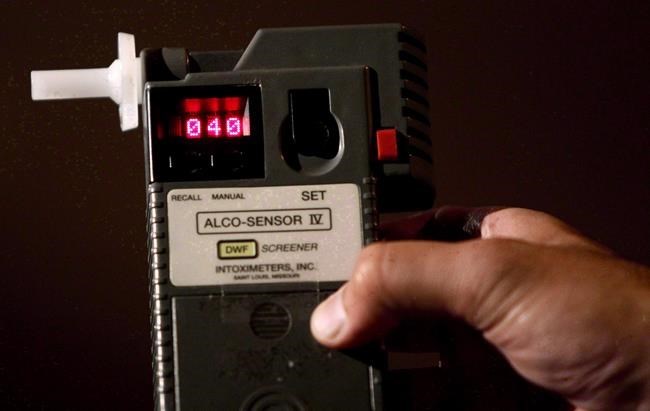MONTREAL — A Quebec coroner is questioning why people who saw a drunk driver get behind the wheel failed to call police before he got into a crash that killed four members of a family north of Quebec City last year.
The report by coroner Donald Nicole dated Nov. 28 said that multiple witnesses saw Éric Légaré drinking at a bar all afternoon and driving erratically, but only one of them reported him about four minutes before the crash.
“Why did only one person contact the police after witnessing the driver erratically driving and his reckless and negligent behaviour?" Nicole asked in the report.
Evidence showed Légaré was driving at least 130 kilometres an hour in a 70 km/h zone when he crashed into another vehicle stopped at a red light, killing James Fletcher, 68; his daughter, Shellie Fletcher-Lemieux, 44; and her two children, Emma Lemieux, 10, and Jackson Fortin, 14.
Two other people in a separate vehicle were also injured in the Sept. 2, 2021, crash.
The report highlighted that after discussions with impaired driving prevention groups, the coroner learned that very few people intervene when they witness a drunk driver get behind the wheel.
Daniel Fortin, 46, the father of young Jackson, said he was surprised that only one person contacted the police regarding Légaré.
“I knew that authorities did not receive many calls, but I was surprised to see that information in the report," he said in an interview Wednesday. "People don’t want to get involved. I get the impression that our society today has an every-man-for-himself outlook and can’t be bothered."
The coroner also noted that data from Transport Quebec showed that motorists rarely respect the speed limit at the intersection where the crash occurred. The report stated that in Quebec between 2015 and 2019, excessive speed accounted for 32 per cent of all fatalities among motorists, which Nicole called a “worrying situation.”
“Since the incident, Transport Quebec has been conducting analysis to improve road safety in the area. In addition, Transport Quebec has begun work to install a photo radar as one of the possible solutions to ensure that the speed limit is respected,” the coroner wrote.
In April, Légaré was sentenced to 16 years in prison after pleading guilty to several charges, including impaired driving causing death and dangerous driving causing death. Blood sample analyses taken after the crash showed that Légaré’s blood alcohol level was twice the legal limit, and he also had traces of cannabis in his blood.
The report recommends permanent programs to remind motorists of the consequences of driving while impaired and to stress the importance of reporting drivers who appear to be impaired.
Additionally, Nicole urged police officers to act swiftly on reports of drunk drivers. He also encouraged authorities to increase the number of police checks throughout the year and systematically screen for alcohol impairment during roadside stops.
Fortin said the recommendations in the report are positive. He believes more police intervention is needed and agreed with the coroner that having more roadblocks throughout the year would serve as a deterrent.
“In my 30 years of driving, I have only gone through one roadblock, and they didn’t even ask for a breath sample to check for my alcohol level. We don’t have enough roadblocks, so people are not scared of getting caught,” Fortin said.
This report by The Canadian Press was first published Dec. 7, 2022.
---
This story was produced with the financial assistance of the Meta and Canadian Press News Fellowship.
Marisela Amador, The Canadian Press


